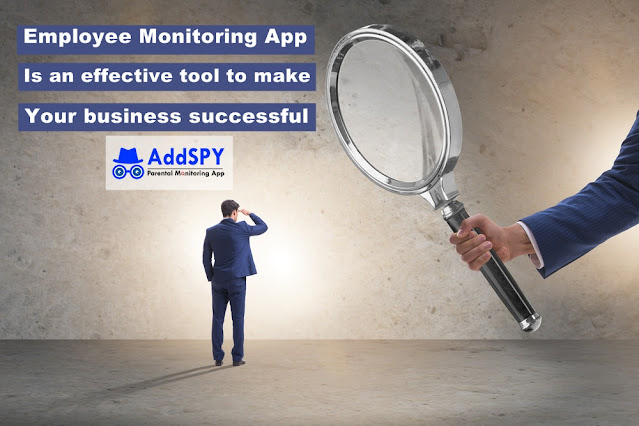Employees Monitoring has become
a regular norm in most firms today. And although some people may challenge this
behavior on ethical grounds, legally it is every employer's right to
monitor their employees' activities on every company-owned gadget provided to, for instance, computers and smartphones. Here is a list of reasons why
employers find it most compelling to monitor their employees' activities:
- Protect your company from possible thefts of both tangible and intangible assets.
- Hold evidence in case the company gets tangled in a lawsuit.
- Helps maintain a strong work ethic for the environment in the workplace.
Can be useful to ensure the law of
the land, For example, hand in criminals for obstruction of the law like
illegalized prostitution.
Get to understand the worker's intricate thoughts about the company.
There are many other reasons which
lead employers into monitoring their employee's activities however there is a fine
line between keeping an eye out and spying on someone. Therefore, in order to
monitor employees legally as well as ethically, we have put down a few pointers
that will not hinder your company's productivity or your employees'
satisfaction levels.
Set concrete policies
Policies help set boundaries. These
are a means of communication exactly what the employer expects from the
employee in terms of their working activities and behaviors, in a very
civilized and corporate manner. These responsibilities should be concrete and
very easy to understand. Rules on internet usage and gadgetry provided by the
company should be adequately balanced while at the same time should also be
clearly defining the potential risks and challenges the company faces if
something bad happens. The employers should also consider getting a non-compete
document signed by all employees after clearly stating to them that monitoring
shall happen periodically. This way the company stays protected from any
harmful legal action in the future.
Disclose potential monitoring
If your employees are in line for a
monitoring spree then the ethical thing to do is let them know about it. This
does not mean the employers should tell the employees exactly when and how the
monitoring shall take place. It only means that a standard advanced notice
should be circulated for monitoring to take place. Although the company would
have already gotten a discloser signed, it doesn't mean that the employee
should feel uncomfortable based on sinister feelings associated with stalking.
This is an ethical concern especially if the employee feels that he or she is
being spied on unnecessarily outside the work environment.
Discretion is implied
Disclosing monitoring possibilities
is one thing while controlling when it is done is another. Employers should
never disclose when and how the monitoring shall take place. This is a discrete
plan and the more anonymous it stays the more effective it is. Discretion about
monitoring will not jeopardize the employer's legal standing either. Nor will it
breach any privacy concerns based on the employees' illicit behaviors'. This is
especially important because monitoring an individual would lead to uncovering
some private orientations about them for example, religion, sexuality, and many
more. Such information could later be used against the company for discrimination
lawsuits.
Use reliable technological apparatus
Rather than going for the
conventional methods of monitoring which could be time-consuming and very
costly, the employer should install a reliable Spy Application that is
programmed to provide aggregate results of any employees' use of company
gadgetry and internet. By going for the bigger picture, you will not only be
taking into account the employees privacy but also be protecting your company
from any potential discriminatory lawsuits.
This Phone monitoring application can also be
programmed to pick up specific material that the employer has fed into it. If
it tends to highlight any red flags in the concerned area, further
investigation and probing can be conducted.
Monitoring employees may have its
upsides but also has many downfalls associated with it too. Therefore there is
usually a tradeoff between the two. And hence it is important that the employer
understands all the risks associated with monitoring before setting on such a
path. One way of staying clear of many problems with monitoring is to
understand and honor the fine line between monitoring and surveillance or
spying. This would help the company stay clear of breaching any legal or
ethical boundaries.


Comments
Post a Comment